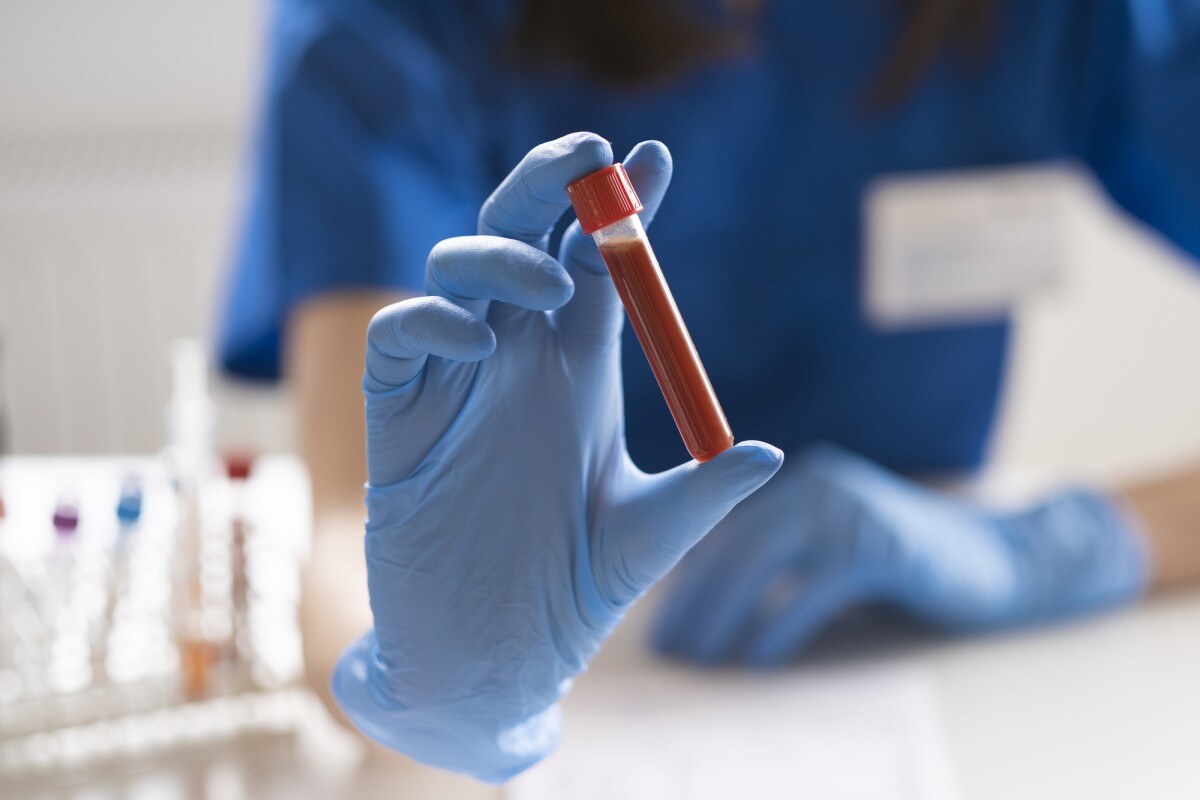This post by Daily Human Care is all about the significant blood tests that you need to stream your health.
Table of Contents
Seven Important Blood Tests
If you opt for an annual physical exam, there’s a chance that your doctor may order some bloodwork. However, what if you have not visited your doctor in some time? Or what if you are going through signs and symptoms that you cannot actually explain? Opting for updated bloodwork is essential in obtaining answers and in avoiding future health issues as well. If you do not know where to begin, here are some 7 significant blood tests you must consider asking your doctor about.

Thyroid panel
The thyroid hormone influences everything right from the individual’s energy to their mood to their metabolism and their monthly cycle. The tiny butterfly-shaped gland present in the facade of the neck secretes two big hormones: thyroxine (T4) and triiodothyronine (T3). When the levels are off the chart, you may experience hyperthyroidism or hypothyroidism. If you are going through something like low energy levels, depression, weight loss or gain, hair loss, irregular periods, or a loss of appetite or increase in appetite, it means that your thyroid is causing this.
Thyroid problems are fairly common. In fact, the ATA [American Thyroid Association] states that approximately 20 million Americans have some type of thyroid disease. The best news is that it is very much treatable, and drawing blood for testing is where that process begins.
CBC [Complete Blood Count]
This specific blood test is a great way to assess your general health. It helps measure the red and white blood cell count, hemoglobin, hematocrit, and platelets. The major reason why you should care is that abnormalities here could actually be an indicator of various disorders, like leukemia, anemia, and a variety of infections. It is for these major reasons a complete blood count test is essential. It is beneficial with identifying illness and assessing progress eventually.
STD [Sexually Transmitted Diseases]
Certainly, various STDs can be identified via a urine or blood test. They include gonorrhea, chlamydia, herpes, HIV, hepatitis, and syphilis. You may be thinking that you are practicing secure sexual practices and that’s good. but, the WHO [World Health Organization] shares some frightening statistics that you should probably take another look at. For example, it says that every day, there are around a million STI [sexually transmitted infections] acquired. Most STDs do not give you any warning signs. And if you do not catch and treat them on time, the results can be extremely dangerous and deadly. You may catch an STD without actually having intercourse at all, so you should get bloodwork done to examine for STDs as well.
Essential nutrients
Nutrients such as vitamin D, iron, potassium, and magnesium are significant for your general health. And yet, you might have to particularly request these tests from a physician. You can get more nutrients and vitamins from a well-balanced diet. For example, spinach and tofu are exceptional sources of iron. Dark chocolate and avocado have magnesium. Baked potatoes, pinto beans, and bananas are great sources of potassium. Still, most people do not get these nutrients.
More than a million people are said to have vitamin D deficiency in the world and this can often lead to hypertension, obesity, fibromyalgia, diabetes, depression, chronic fatigue syndrome, osteoporosis, and neurodegenerative diseases (such as Alzheimer’s disease). A blood test can let you know if the body has an adequate amount of these vital nutrients.
Lipids
Lipids play a number of imperative roles in your body. They aid with the body’s ability to save energy, offer insulation, and help in contributing toward the well-being or blockage of the arteries. This is why it is important to take a good look at the various lipid levels in the body. You should opt for a lipid profile test. The cholesterol levels can be a sign of how healthy the arteries are or how unhealthy they are. If the levels are off, you might be at an enhanced danger of coronary artery illness, which can often lead to a stroke or a heart attack. A yearly check of cholesterol levels is significant.
CMP [Comprehensive Metabolic Panel]
This blood test helps take a good look at the individual’s glucose level, fluid and electrolyte balance, kidney function, and liver function. The panel evaluates the levels of albumin, calcium, blood urea nitrogen, chloride, carbon dioxide, sodium, creatinine, glucose, potassium, liver enzymes, and the total bilirubin and protein.
All these elements serve a vital role. For example, your body uses glucose for energy, while electrolytes help keep all the fluids in balance and your body operating as normal. This includes brain function, heart rhythm, and muscle contractions. These tests are a great addition to your standard bloodwork. They can be utilized to examine for conditions like liver and kidney function and diabetes as well.
Testosterone and Estrogen
It is a general thought that testosterone is just a male hormone and estrogen is merely a female hormone. But, the truth is that everybody needs them both. Estrogen in men is helpful in combating osteoporosis and enhancing heart health and metabolism whilst testosterone in women influences sex drive, fertility, red blood cell production, fat distribution, and muscle mass.
Of course, men generally have more testosterone and women usually have more estrogen. That is how their bodies are made. However, levels that are too high or low of either of these hormones can be unsafe. A simple blood test can inform you about the facts.
This bloodwork list isn’t intended to be exhaustive. It is just a beginning point for an individual. You must talk to your physician about any signs that you are going through so that he/she can recommend necessary bloodwork accordingly.


